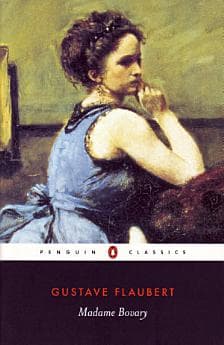- Published on
Madame Bovary
- Authors

- Name
- Gustave Flaubert
- @search?q=Gustave Flaubert

Madame Bovary Summary
Introduction
Plot Overview
Part 1: Emma's Marriage and Discontent
- Setting and Characters Introduction: The novel begins with Charles Bovary, a mediocre and dull doctor, and his marriage to Emma Rouault, a farmer's daughter with romantic and bourgeois aspirations.
- Emma's Disillusionment: Emma quickly becomes disillusioned with her marriage and the provincial life. Her dreams, fueled by the novels she reads, are in stark contrast to her mundane existence.
Part 2: Emma's Affairs and Debts
- Affairs and Escapism: Emma engages in extramarital affairs, first with Rodolphe Boulanger, a wealthy landowner, and then with Léon Dupuis, a young law clerk, seeking the passionate love and excitement she craves.
- Mounting Debts: Unbeknownst to Charles, Emma accumulates significant debts due to her lavish lifestyle and secret expenses, including gifts for her lovers.
Part 3: Downfall and Tragedy
- Financial Ruin: Emma's debts become unmanageable, leading to a financial crisis. Her inability to repay drives her into desperation.
- Tragic End: Faced with disgrace and unable to see a way out, Emma commits suicide by consuming arsenic. Charles, devastated by her death and his subsequent discovery of her infidelity, dies heartbroken.
Characters
- Emma Bovary: The protagonist, whose dissatisfaction with her life and pursuit of romantic ideals lead to her downfall.
- Charles Bovary: Emma's husband, a well-meaning but dull doctor who is oblivious to his wife's emotional needs and affairs.
- Rodolphe Boulanger: Emma's first lover, who is selfish and ultimately abandons her.
- Léon Dupuis: Emma's second lover, a young and romantic clerk, but their relationship is also doomed.
- Monsieur Homais: The local pharmacist, who represents the bourgeois values and hypocrisy criticized in the novel.
Themes
- Illusion vs. Reality: Emma's idealistic and unrealistic expectations of love and life clash with the harsh realities of her world.
- The Bourgeoisie: Flaubert criticizes the middle-class society for its materialism, superficiality, and moral hypocrisy.
- Romanticism and Realism: The novel contrasts Romantic ideals with Realist depictions of everyday life.
- Feminine Discontent: Emma's plight reflects the limited roles and opportunities available to women in the 19th century.
Literary Significance
"Madame Bovary" is renowned for its detailed character development, psychological depth, and realistic portrayal of the provincial life of the French bourgeoisie. Flaubert's meticulous approach to writing and his focus on the ordinary aspects of life marked a significant shift in literary style and influenced many subsequent writers.
Conclusion
"Madame Bovary" is a tragic tale of a woman's quest for unattainable dreams. The novel's enduring relevance lies in its exploration of human desires, societal norms, and the often-painful gap between aspirations and reality.
Image Inclusion

An illustration of Emma Bovary in her garden, reflecting her romantic aspirations and inner turmoil.
